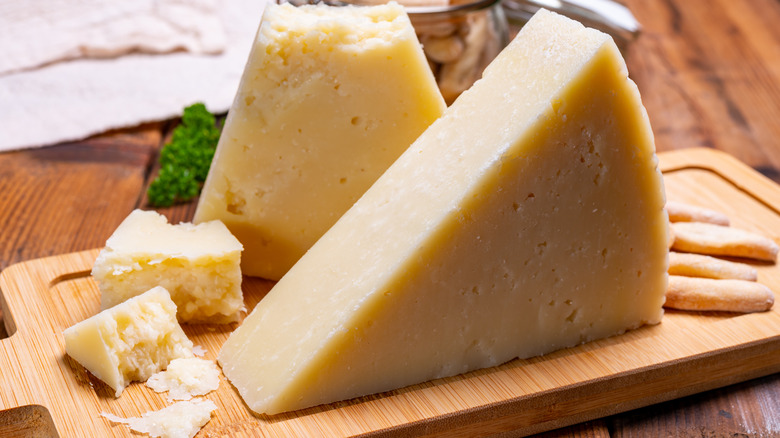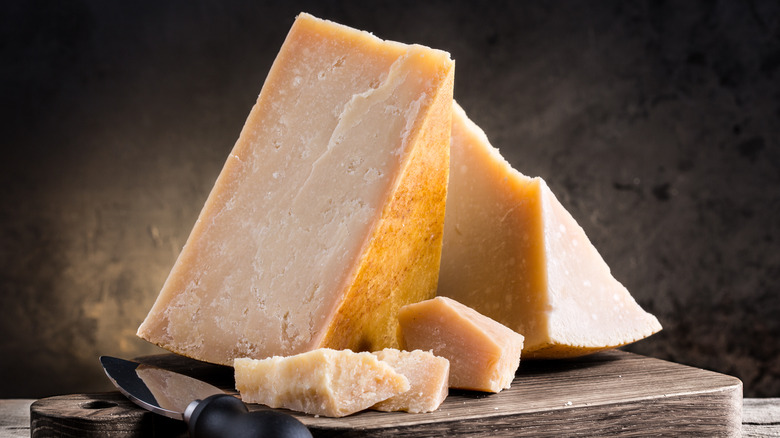Here's What You Can Substitute For Pecorino Romano
There are times when you may come across a recipe that looks delicious but calls for an ingredient that you may not have on hand or in your fridge. It's possible it may be hard to find at the supermarket, or maybe you don't want to make an extra trek to a specialty store, or better yet, leave your house and you're wondering if substituting will work. For instance, Pecorino Romano is an aged, hard, salty cheese that has a slight nutty flavor, but if you don't have it on hand, you may be curious about what to sub in.
Pecorino Romano is a cheese that is made in specific regions in Italy and has a DOP, or Protected Designation of Origin, that must follow specific European Union standards and requirements in order to be considered and called Pecorino Romano, according to an article in Cookist. Pecorino Romano cheese is made from sheep's milk, giving it a sharper and more pungent flavor than cow's milk-based cheeses, such as Parmigiano Reggiano, according to Cook's Illustrated.
Substituting Pecorino Romano cheese for another hard, aged cheese can be done.
Parmesan cheese can be a substitute
Parmigiano Reggiano, or Parmesan, also made in Italy, is often a substitute. But it's important to note that to be called Parmigiano Reggiano, it must meet several criteria, including how long it's aged, whereas those made in the United States don't have the same requirements, according to Bon Appetit. This often results in different flavors, taste, and texture because the aging process is shorter, according to an article in Cookist.
One of the key differences is the amount of salt between these two cheeses. As noted in the article in Bon Appetit, "Its saltiness can overwhelm pasta dishes with delicate sauces, so if you're using Pecorino in a recipe that calls for Parmesan, make sure to dial back on the kosher salt."
Another cheese to use as a substitute for Pecorino Romano is Piave, which is made with cow's milk and similar to Parmesan. The main difference is, it's aged for about a year instead of the standard 18-36 months for Parmesan, according to Bon Appetit. "It's a tad sweeter than Parmesan, and noticeably creamier. But it's still hard enough to grate into sauces and on top of roasted vegetables, toasts, and pastas," states Bon Appetit.

